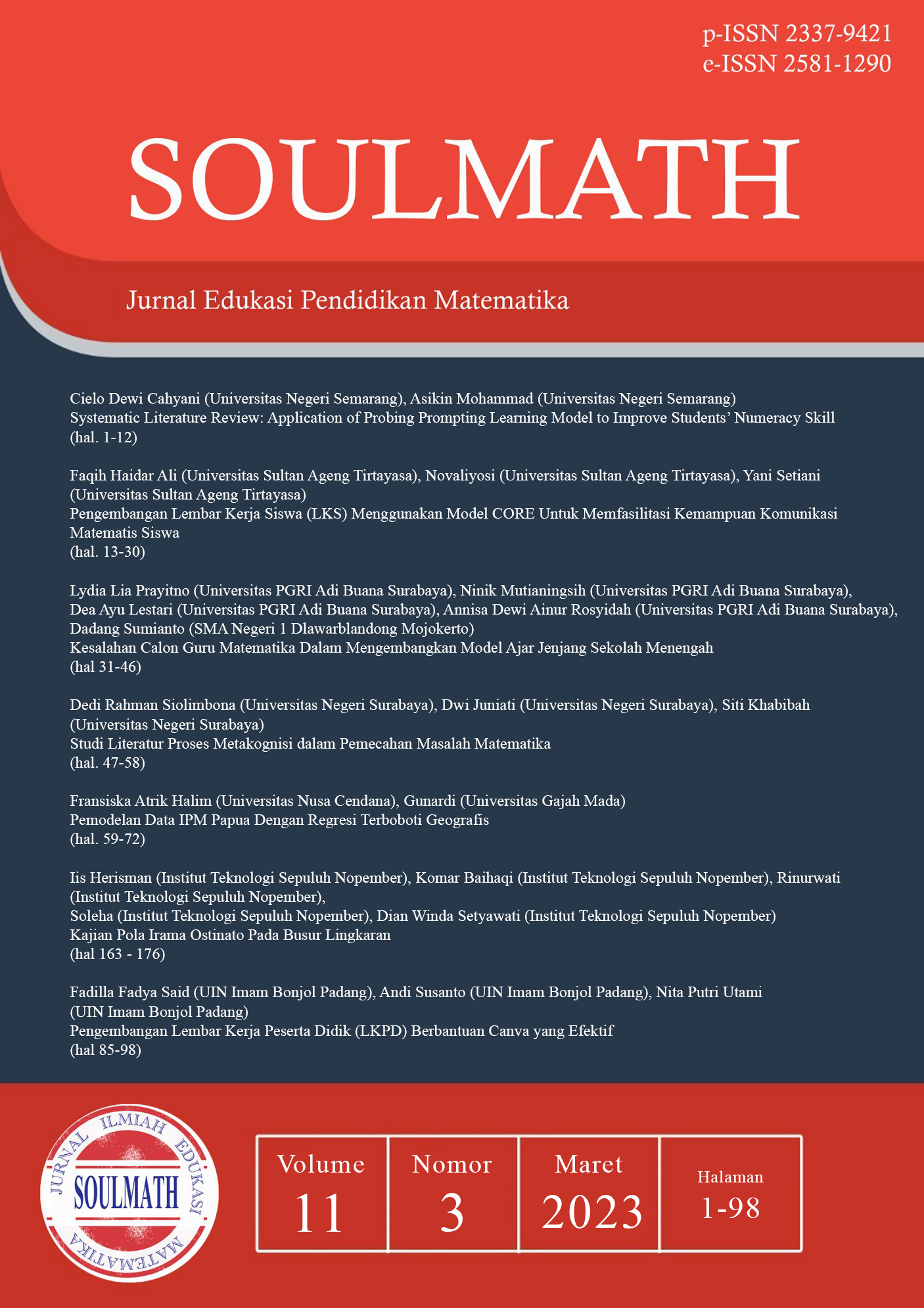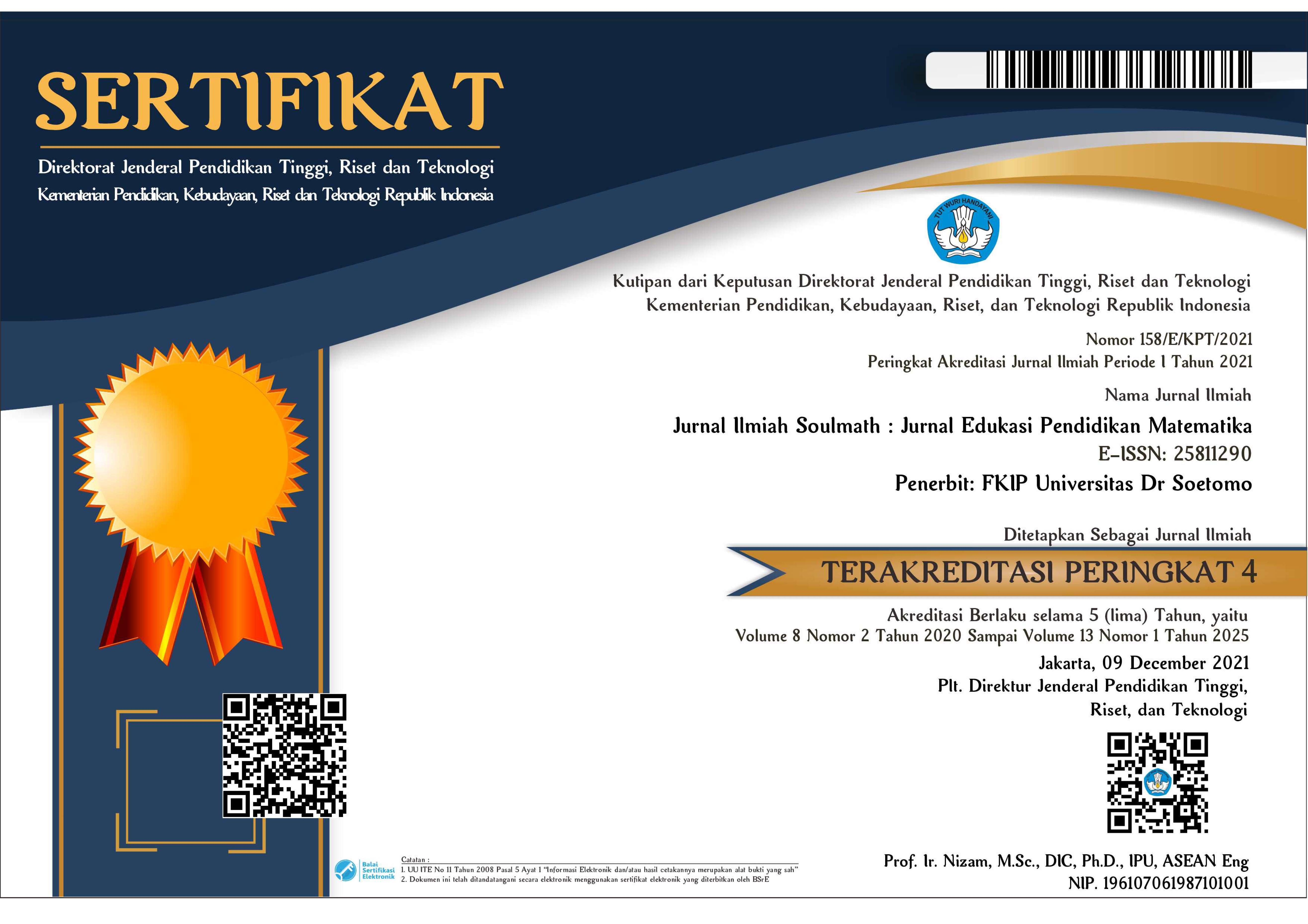Kajian Pola Irama Ostinato Pada Busur Lingkaran
 Abstract views: 213
,
Abstract views: 213
,
 6025 Publish (Bahasa Indonesia) downloads: 414
6025 Publish (Bahasa Indonesia) downloads: 414
Abstract
Rhythm is one of the basic elements of music. It is formed from a combination of a group of sounds and silences, as well as various timelines and lengths of tempos. One of the rhythm patterns is Ostinato, which is a rhythm pattern that has special characteristics with a sound that is heard repeatedly and takes place regularly throughout the song so that it forms a rhythmic unit. The timeline of rhythmic ostinatos is easy to recognize and remember and plays an important role in music. In addition, it acts as a conductor's function to organize and can give cues to musicians through the fundamental cyclic structure of the pieces of the rhythm. The aim of the research is to examine the results of the rhythm patterns that have been recorded by the electrocardiogram in a schematic diagram, with the given keys divided into sound and silent keys. The Ostinato rhythm pattern is periodic or repeated and then transformed into a circular arc as the seat of the keys. The result of this research is a circle that constitutes a polygon, with the sides being the rhythm timeline between each sound key and the next sound key.
Keywords: Ostinato, keys, timeline, polygon
Downloads
References
J. Yongky, P. Fakultas Bahasa, D. Seni, and U. N. Surabaya, “ANALISIS TEKNIK OSTINATO PADA KOMPOSISI SOLO DRUM œKRAKATAU KARYA DENNY AJD,” Repert. J., vol. 1, no. 2, pp. 347–358, Jun. 2021, doi: 10.26740/RJ.V1N2.P347-358.
R. M. Simanjuntak, A. Christie, P. Br Ginting, J. D. Situmorang, and A. I. Pardede, “Eksplorasi Etnomatematika pada Alat Musik Sulim,” Sepren, vol. 4, no. 01, pp. 69–73, Nov. 2022, doi: 10.36655/SEPREN.V4I01.847.
G. T. Toussaint, The Geometry of Musical Rhythm : What Makes a “Good” Rhythm Good?, Second Edition, 2nd Editio. New York: Chapman and Hall/CRC, 2019.
G. T. Toussaint, S. M. Oh, G. T. Toussaint, and S. M. Oh, “Measuring Musical Rhythm Similarity: Further Experiments with the Many-to-Many Minimum-Weight Matching Distance,” J. Comput. Commun., vol. 4, no. 15, pp. 117–125, Nov. 2016, doi: 10.4236/JCC.2016.415011.
R. Uly, Buku Probalitas. Jakarta: UKI Press, 2019.
R. Haese, S. Haese, M. Haese, M. Bruce, K. Harris, and D. Kappelle, Mathematic for Year 9. Haese & Harris Publications, 2006.
P. R. Vittal, ANALYTICAL GEOMETRY. Chennai New Delhi: Licensees of Pearson Education in South Asia, 2013.







